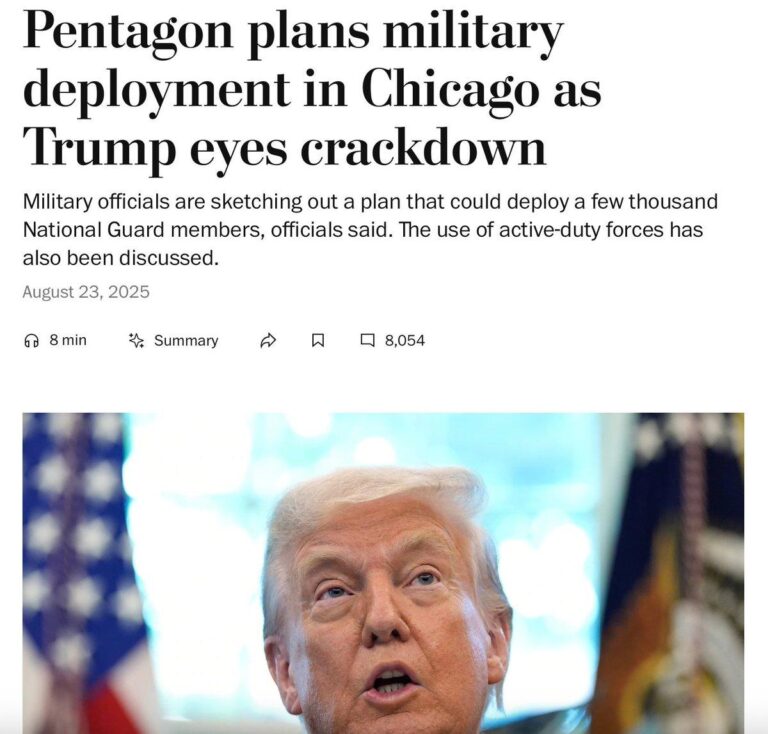Illinois Leadership Responds to Controversial Federal Military Deployment Plan
Governor Pritzker and Attorney General Raoul Speak Out on Federal Troop Deployment in Chicago
Illinois Governor J.B. Pritzker alongside Attorney General Kwame Raoul are preparing to publicly address the contentious decision by the previous Trump administration to deploy federal military forces within Chicago. This announcement follows a landmark ruling by a California court that declared the use of federal troops in Los Angeles unlawful, igniting a nationwide debate over the legal and constitutional limits of military involvement in domestic law enforcement.
Illinois officials have voiced apprehensions regarding the potential consequences such military presence could have on civil rights and the autonomy of local governance.Their forthcoming statements are expected to focus on several critical themes:
- The legal framework governing military intervention in metropolitan areas
- The delineation of authority between state governments and the federal administration in maintaining public safety
- Effects on community relations and law enforcement trust
- National implications stemming from the California court’s precedent
Examining the Legal Fallout from the California Court’s Decision on Federal Troop Deployment
The recent judicial decision in California, which invalidated the deployment of federal troops in Los Angeles, carries significant legal weight. The court emphasized the protection of state sovereignty and highlighted constitutional constraints on federal military involvement within state borders. This ruling challenges existing interpretations of the Insurrection Act and raises pivotal questions about the scope of executive power during civil unrest.
Key legal considerations include:
- State vs. Federal Jurisdiction: Reinforces the primacy of state authority in managing local law enforcement without excessive federal interference.
- Constitutional Safeguards: Affirms the necessity for judicial oversight to ensure military deployments respect constitutional rights.
- Military Engagement Limits: May redefine or restrict the conditions under which military forces can be used domestically.
- Prospects for Appeal: The federal government is likely to contest the ruling, possibly escalating the matter to higher courts and shaping national legal standards.
| Legal Dimension | Consequence |
|---|---|
| State Sovereignty | Restricts federal military involvement in state law enforcement |
| Insurrection Act Submission | Demands stricter judicial review of deployment criteria |
| Constitutional Rights Protection | Strengthens safeguards against military overreach |
Political Consequences for the Trump Administration Amid Legal Challenges
The California court’s ruling has triggered significant political repercussions, drawing the attention of Illinois officials who are preparing to respond. Governor Pritzker and Attorney General Raoul’s forthcoming remarks in Chicago underscore a growing resistance to the Trump administration’s approach to domestic military deployment. This judicial rebuke not only questions the legality of such actions but also fuels broader discussions about federal overreach and the protection of civil liberties.
- State Opposition: Illinois leaders advocate for safeguarding residents’ rights against unauthorized federal military interventions.
- Political Mobilization: The ruling may energize opposition groups and legal advocates to pursue further challenges nationwide.
- Public Reaction: Increased public scrutiny and protests are anticipated as communities demand obvious and lawful protocols for troop deployments.
| Area | Effect |
|---|---|
| Federal Government | Potentially reduced executive authority over domestic military use |
| State Governors | Heightened activism opposing federal troop deployments |
| Judicial Precedents | Stronger court oversight on military involvement in civil matters |
| Civil Rights | Improved protections against unlawful military presence |
Strategies for Improved Collaboration Between State and Federal Authorities on Military Deployment
In response to recent legal challenges,it is crucial for state and federal entities to develop clearer interaction channels and cooperative frameworks regarding military interventions in domestic settings.Recommended measures include:
- Greater Openness: Real-time information sharing between state and federal agencies to avoid jurisdictional conflicts and ensure accountability.
- Defined Legal Protocols: Establishing explicit guidelines that clarify the scope and limitations of military involvement in civil disturbances.
- Joint Training Exercises: Regular coordinated drills between state National Guard units and federal military forces to enhance operational cohesion and reduce misunderstandings.
Additionally, the formation of bipartisan oversight committees is essential to monitor military actions within state boundaries, ensuring adherence to constitutional mandates and federal laws. Clear criteria for emergency activation, intervention scope, and accountability will help prevent future legal disputes and maintain a balance between national security and states’ rights.
| Suggestion | Objective | Anticipated Benefit |
|---|---|---|
| Transparency Initiatives | Facilitate information exchange among agencies | Minimize jurisdictional disputes |
| Legal Frameworks | Clarify authority and operational limits | Reduce litigation and confusion |
| Collaborative Training | Enhance readiness and coordination | Improve response effectiveness |
| Bipartisan Oversight | Ensure lawful military interventions | Balance federal and state interests |
Conclusion: Navigating the Complexities of Federal Military Deployment in Urban Areas
As the national conversation intensifies around the deployment of federal troops in domestic law enforcement, the forthcoming statements from Governor J.B.Pritzker and Attorney General Kwame Raoul in Chicago will be pivotal. Their insights, especially considering the recent California court ruling that invalidated troop deployment in Los Angeles, will contribute substantially to the ongoing discourse on balancing public safety with civil liberties. The outcomes of these discussions are likely to influence future policy frameworks and public attitudes as states and the federal government work to define the appropriate boundaries of military involvement in local governance.





